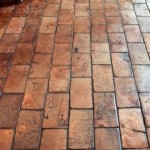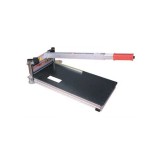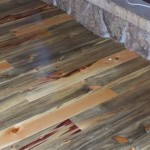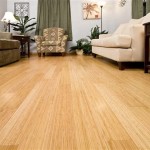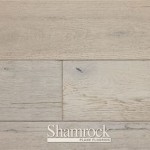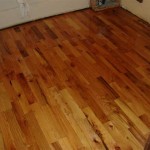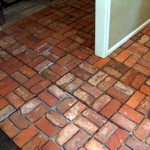Liquid Rubber Flooring for Garages: A Comprehensive Guide
Garages are often neglected spaces, subjected to wear and tear from vehicles, tools, and the elements. Traditional flooring materials, such as concrete, can become cracked, stained, and dusty, diminishing the overall appeal and functionality of the garage. Liquid rubber flooring, a durable and versatile solution, offers a compelling alternative that transforms garages into cleaner, safer, and more aesthetically pleasing spaces. This article delves into the advantages, installation process, and considerations of liquid rubber flooring for garages.
Benefits of Liquid Rubber Flooring for Garages
Liquid rubber flooring, also known as polyurea or polyurethane flooring, provides a range of benefits that elevate the garage environment. Its robust properties make it an ideal choice for high-traffic areas, while its customizable aesthetics allow homeowners to personalize their space.
Enhanced Durability
Liquid rubber flooring is renowned for its exceptional durability. It possesses high tensile strength, making it resistant to impacts, scratches, and abrasions. This inherent toughness ensures that it can withstand the weight of vehicles, the dropping of tools, and the movement of heavy objects.
Moisture Resistance
Garages are prone to moisture accumulation due to spills, leaks, and seasonal changes. Liquid rubber flooring is waterproof, forming a seamless barrier against water penetration. This property safeguards against mold and mildew growth, preserving the structural integrity of the garage and ensuring a healthy environment.
Easy Maintenance
Unlike concrete flooring, which requires regular sealing and cleaning, liquid rubber flooring is remarkably low-maintenance. Its non-porous surface prevents dirt and grime from embedding, enabling easy cleaning with a broom, vacuum, or damp mop. Spills are easily wiped away, eliminating the need for scrubbing and harsh chemicals.
Slip Resistance
Safety is paramount in any garage environment. Liquid rubber flooring provides excellent slip resistance, reducing the risk of accidents due to spills, oil leaks, or wet surfaces. This feature enhances the safety of both individuals and vehicles, making the garage a more secure space.
Aesthetic Appeal
Liquid rubber flooring offers a wide range of color options, allowing homeowners to personalize their garages to match their décor preferences. From classic gray and black to vibrant hues, the possibilities are endless, enabling the creation of a functional and aesthetically pleasing environment.Installation Process of Liquid Rubber Flooring
The installation process for liquid rubber flooring is generally straightforward and can be completed by experienced professionals. The process involves a series of steps, each crucial to ensuring a durable and long-lasting finish.
Surface Preparation
Prior to installation, the existing garage floor needs thorough preparation. This involves removing any loose debris, cleaning the surface, and repairing any cracks or imperfections. The surface must be level and free of contaminants for optimal adhesion.
Primer Application
A primer is applied to the prepared surface to enhance adhesion and create a uniform bond between the flooring and the substrate. The primer allows the liquid rubber to adhere properly, preventing peeling or delamination.
Liquid Rubber Application
The liquid rubber material is then applied in multiple coats, each allowed to cure completely before the next layer is applied. The number of coats depends on the desired thickness and durability, ensuring a long-lasting finish.
Curing Time
After application, the liquid rubber needs adequate curing time to reach its full strength and durability. This duration typically ranges from 24 to 72 hours, depending on the specific product and environmental conditions.Considerations for Liquid Rubber Flooring in Garages
While liquid rubber flooring offers numerous advantages, homeowners should consider several factors before deciding on this flooring option for their garage.
Cost
Liquid rubber flooring is generally more expensive than traditional concrete flooring. However, its long-term durability and low maintenance requirements can offset the initial cost over time.
Professional Installation
For optimal results, it is advisable to hire experienced professionals for the installation of liquid rubber flooring. Qualified installers have the expertise to ensure proper surface preparation, application techniques, and curing processes.
Moisture Control
Liquid rubber flooring is highly moisture-resistant, but it is crucial to ensure proper moisture control in the garage environment. This involves addressing any potential sources of leaks or condensation to prevent damage to the flooring.
Garage Ventilation
During the installation process and the curing period, adequate ventilation is essential. This ensures proper air circulation and prevents harmful fumes from accumulating in the garage.
Rubberized Flooring Paint Liquid Rubber Floor Coating

Rubberized Flooring Paint Liquid Rubber Floor Coating

Garage Floor Coatings Quality Flooring For Garages Basements And More

Rubberized Flooring Paint Liquid Rubber Floor Coating

Rubber Garage Flooring Guide

Rubber Garage Flooring Guide

Garage Flooring The Home Depot

Rubberized Flooring Paint Liquid Rubber Floor Coating

Rubber Garage Flooring Guide

Rubberized Flooring Paint Liquid Rubber Floor Coating


